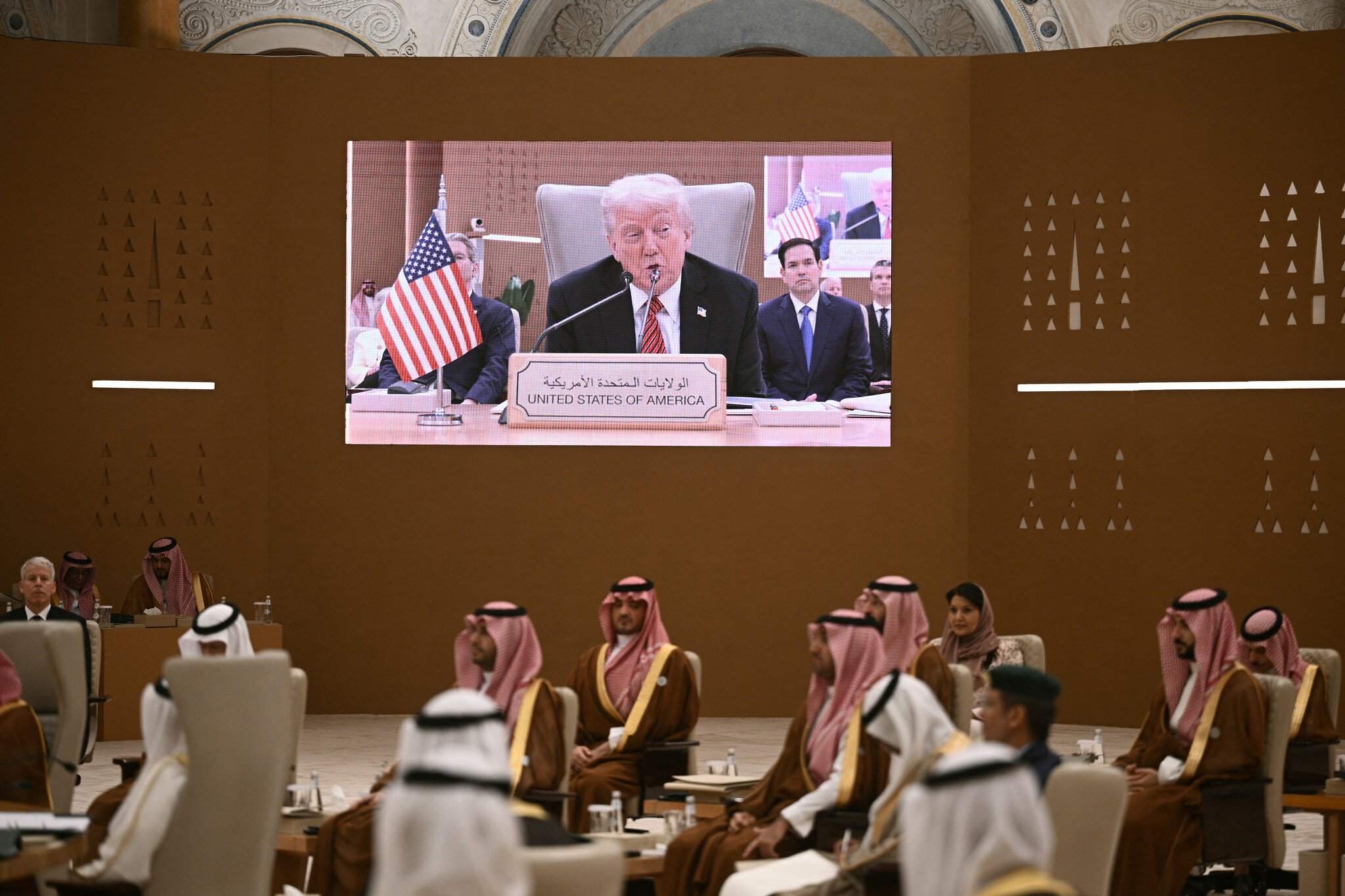



The leaders of Saudi Arabia, Qatar, and the United Arab Emirates told US President Donald Trump during his Middle East visit earlier this month that they oppose a military strike on Iran’s nuclear program, Hebrew media reported Thursday.
The countries also told Trump that he should keep working toward a nuclear deal with Iran, the Walla news site reported, citing three officials familiar with the details.
Qatari Emir Tamim Al Thani, Emirati President Mohammed Bin Zayed and Saudi Crown Prince Mohammed Bin Salman said that their countries would be targeted by Iran in case of an attack, the report said.
The New York Times reported Wednesday that US officials are worried Israel could decide to carry out strikes on Iran’s nuclear program without much warning, and even if a deal is reached. Trump later that day confirmed The Times’ report that he’d asked Prime Minister Benjamin Netanyahu during a call last week not to take military action against Iran that could disrupt ongoing talks.
Trump has repeatedly threatened to unleash airstrikes targeting Iran’s program if a deal isn’t reached.
CNN reported Thursday that the US and Iran are closing in on a broad, interim nuclear agreement that may be signed in the next round of negotiations and that White House officials and others hope will lead to follow-up talks and define specific markers for implementation.
The talks could reportedly end up forming an international consortium of Mideast countries and the UN atomic watchdog, which would enrich uranium for the Islamic Republic, though the report cautioned that nothing has been agreed upon yet.
The issue of enrichment has been a key dispute in the negotiations, with US officials insisting on its total elimination in Iran, while the Islamic Republic has called it a red line.
The deal doesn’t include Tehran’s ballistic missile program and isn’t expected to broaden to include more issues, the report said.
If any declaration of principles is to satisfy Israel, as well as Iran hawks in the US Congress, it will probably have to require Iran to ship its current stock of highly enriched uranium out of its borders, or “down blend” it to a much lower level of enrichment, The Times reported Wednesday.
If so, that would allow Trump to claim he had, at least temporarily, removed the threat of an Iranian speed run to a nuclear bomb.
Iran, which avowedly seeks Israel’s destruction, has consistently denied seeking to acquire nuclear weapons. However, it has been enriching uranium to levels that have no peaceful application, has obstructed international inspectors from checking its nuclear facilities and expanded its ballistic missile capabilities, while several officials have increasingly warned that they could pursue the bomb.
Jacob Magid contributed to this report.

